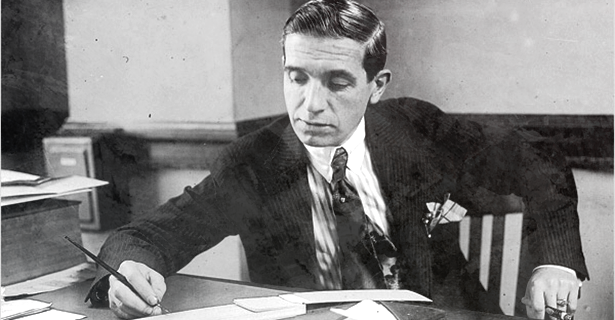Why Investors Fall For Ponzi Schemes
Professor Richard Taffler, WBS
Published December 2011

Why do educated people fall for Ponzi schemes? How come, following the turn of the century dotcom stock-market bubble, did we not learn its lessons, instead going on to experience the same thing with the Chinese property market crisis a mere six years later? In the current recession, more than ever, why do we forget that stock markets can go down as well as up?
Emotional economics is a new and quite highly controversial interdisciplinary perspective on financial activity that draws on an understanding of unconscious processes and how these drive much of what we do in financial markets.
It has, says Prof Taffler, a powerful role to play in driving investment decisions and market behaviour. Emotional finance recognises the processes of group psychology, and acknowledges that markets have behaviours of their own that are separate from the individuals who invest in them. Investment is driven by ideas and emotions that we’re not directly aware of – something that the Professor terms a ‘phantasy’. He goes on to explain that a ‘phantastic object’ is an investment that’s enormously exciting - such as the turn of the century dotcom bubble - that fulfils the idea in unconscious terms that we can have anything we want, when we want it. Whilst we are looking for Aladdin’s genie in the lamp we forget that, in Prof Taffler’s words, “there’s no such thing as magic in investments”.
Supposedly we are rational thinkers but we are actually normal, frail human beings who take decisions for emotional reasons and not just from slide rules. “Emotional finance teaches that we often deal with this conflict by avoiding what we don’t want to know – we repress these feelings – they become unconscious.” Individual investors are “amazingly able to lose enormous sums of money whilst believing they’re actually investing for the future”. They may identify stocks that go up but then sell them and invest in stocks that go down.
Investment is inherently an emotional process. Seeing as we can’t predict what’s going to happen with our investments, for both individual investors and fund managers the process is inherently associated with high levels of anxiety and distress. There’s a conflict between the outcomes and returns we wish for and cold, hard, reality.
The fraudulent American financier Bernie Madoff was the perfect phantastic object, until he admitted, in 2008, that his wealth management business was a Ponzi scheme. Investors were promised an eight to 12 per cent return forever with no risk; questioners were ignored because people wanted to believe in the power of the phantastic object.
People in the last two decades, says Prof Taffler, “believed that dotcom and subprime were real investments”. Due to group processes “any attempt to think independently was blocked”. The professional fund manager is a phantastic object, expected to find and invest in phantastic objects, indeed s/he is sold as such by employers. Individual investors, however, are in it for the excitement and the emotion of the ride – “they are ‘sensation seekers’ akin to bungee jumpers”.
What does the study of emotional finance reveal? Prof Taffler concludes that “investment is not about greed, fear and hope, but excitement, anxiety and denial”.
 Richard Taffler is a Fellow of the Chartered Institute of Management Accountants (FCMA). He joined WBS from Manchester Business School in January 2011 as Professor of Finance and Accounting. Before that he was the Martin Currie Professor of Finance and Investment at the University of Edinburgh.
Richard Taffler is a Fellow of the Chartered Institute of Management Accountants (FCMA). He joined WBS from Manchester Business School in January 2011 as Professor of Finance and Accounting. Before that he was the Martin Currie Professor of Finance and Investment at the University of Edinburgh.
His interests include the identification and exploitation of stock market anomalies, including the market's inability to deal with bad news appropriately; fund manager performance and the nature of their investment decisions; sell-side analyst judgments; financial distress; and the impact of CEO overconfidence and narcissism on firm performance.
He is currently helping to develop the new paradigm of emotional finance to complement traditional and behavioural perspectives, focusing on the role of the emotions and the unconscious in investment decisions and market behaviour.
Images: Charles Ponzi in 1920 {{PD-US}} ==Source== *Boston Public Library.
Alternative Investments by Terence Wright (via Flickr)
